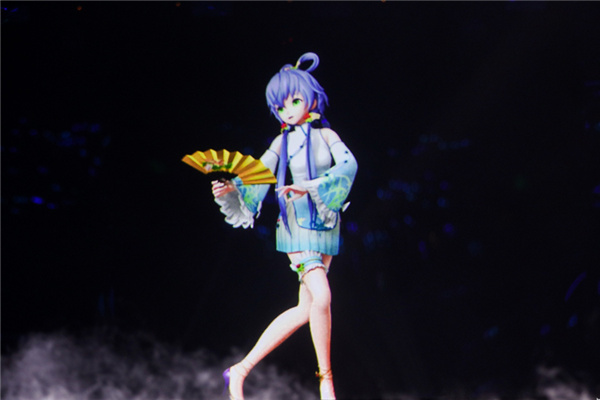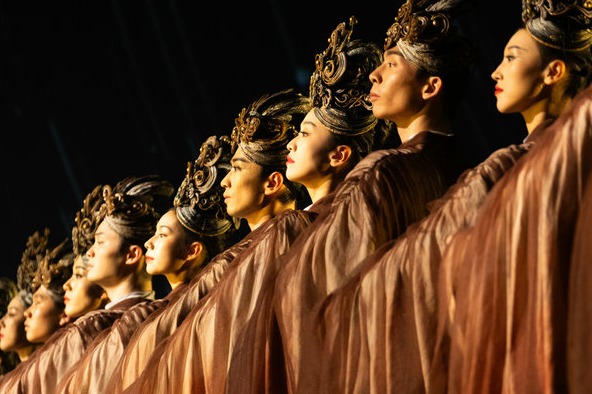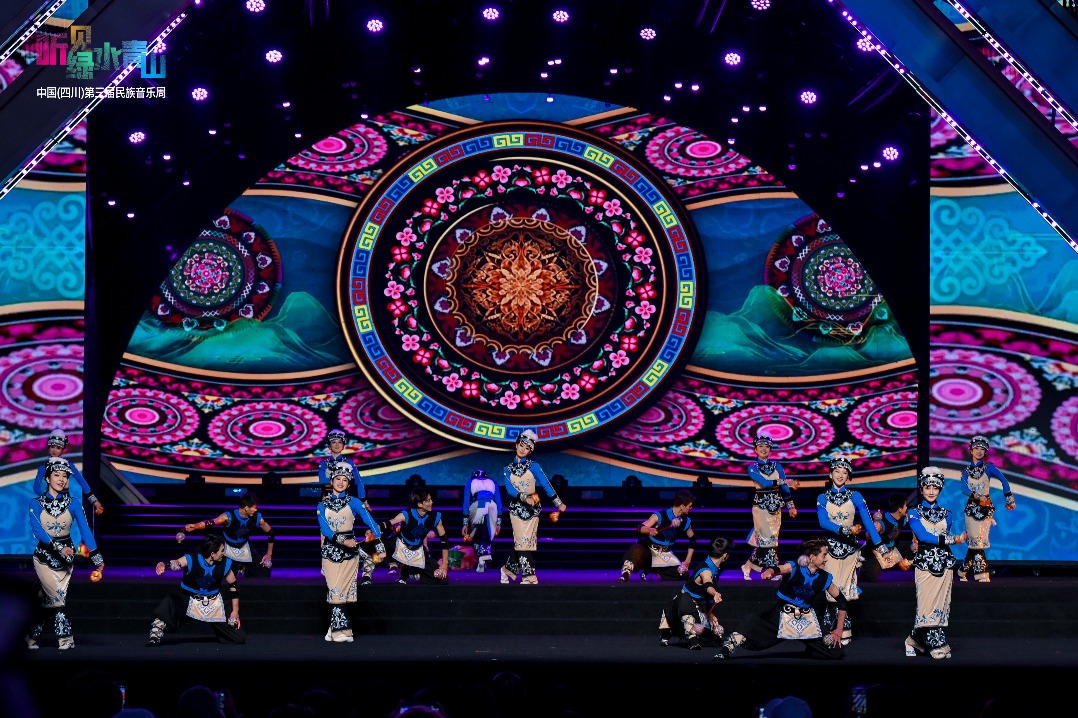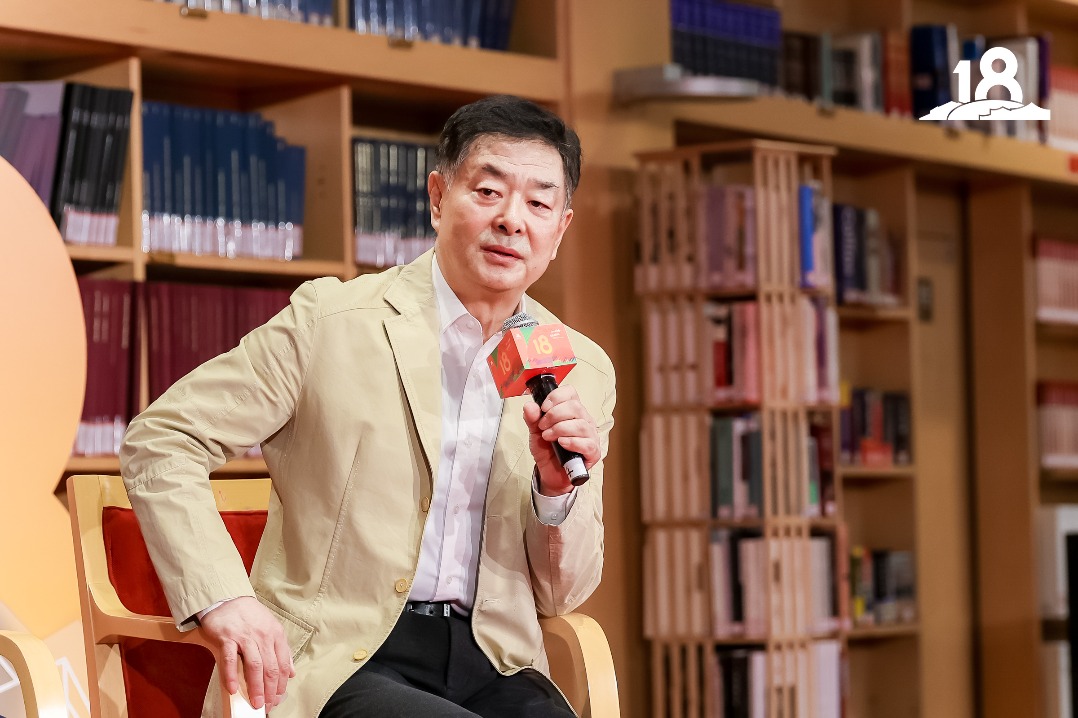Rising virtual stars bring down the house in digital era


Among the prize winners at the 11th Annual Hollywood Music in Media Awards (HMMAs) in January was one that bucked convention and raised a few eyebrows, largely because the performers were not human.
The award for Outstanding Song in a video game went to the band K/DA, consisting of four imaginary characters from League of Legends, one of the world's most frenetic games.
While the news may have been eye-opening for some, it reflects a growing trend of fascination with virtual stars, which seem to have several advantages over their real-life counterparts.
In 2020, China's online streaming giant iQiyi launched the country's first-ever talent show for virtual idols, Dimension Nova, where its own virtual band, RiCH BOOM, blew everyone's mind with the razzmatazz of their performances.
"They are so different, clad in Peking Opera costumes on their debut show. Although they have a hint of the West about them, the virtual stars have more Chinese features," said Zuo Ying, a 30-something groupie.
Perfect in every picture, virtual stars echo the popular aesthetic ideals and convey the latter-day values and attitudes of their consumers, mainly the Generation Z, those born in the late 1990s and early 2000s.
But the real allure of virtual idols lies in the undreamt-of immersive experience.
Today's young digital natives show an increasing preference for products equipped with state-of-art technologies, including Artificial Intelligence (AI), Virtual Reality (VR), Augmented Reality (AR) and Mixed Reality (MR), and thus the need for real-time interaction and futuristic entertainment forms is evident, according to Yang Xiaoxuan, vice-president of iQiyi.
"Computer-generated idols blend entertainment and technologies perfectly and provide huge room for the imagination," said Yang.
Around 2018, more than 30 virtual idols and bands stepped onto the stage, and the figure has more than doubled in just three years, according to a report released by the company.
The target audience consists of youngsters in their twenties, who are willing to fork out their money for material enjoyment and live in first-tier cities and the surrounding areas. They are young enough to accept new things, they dare to express themselves and pursue their own personalities, and they await the recognition of their niche culture, said Yang.
"Virtual idols amplify certain personalities, including being provocative, straightforward and sometimes rebellious. They chafe at social problems in their lyrics, which I bet real-life celebrities dare not do," said a fan surnamed Wu, 27.
The various digital avatars are churned out based upon their producers' main areas of activity. While fashionistas put on virtual fashion shows with 3D models, K/DA came to prominence with the help of an online game, and RiCH BOOM found its niche through iQiyi's original web dramas and duets with real-life stars in variety shows.
RiCH BOOM's rise to stardom has involved world-class creative teams, including but not limited to renowned animation directors, writers, illustrators, toy designers, musicians and choreographers.
The technologies behind the scene are even more enigmatic, involving the use of motion-capture technology, followed by implementing the avatars into a game engine, according to iQiyi.
Currently, fans attending live shows may well be disappointed at the absence of the naked-eye 3D display technology, being forced to rely instead on simulation technology and holographic screens. However, for those glued to TV and smartphone screens, real-time interaction and livestreaming have become possible thanks to AR technology.
For the hardcore fans of virtual stars, one of the biggest attractions is the eternally consummate morals of their idols. They have seen too many famous real-life stars fall overnight, but the digital ones are consistent and customized to fit the latest fashions.
It is time for fans to heave a sigh of relief, as there will be no more scandals or inappropriate speeches made by their idols, according to Yang.
She also believes that, in the coming era of 5G and AI technology, more and more urbanites will edge away from face-to-face social contact and move toward virtual companionship. Digital idols will help meet this demand, ensuring the privacy of young empty nesters, and bringing intimacy and trust through constant companionship, something that celebrities in the real world just can't replicate.
"In the beginning, virtual stars are a blank sheet, and they are completed step by step together with fans," said Yin Miao, a university student in Xi'an, capital city of northwest China's Shaanxi province.
The sentiment was expressed well in the comments below a song by RiCH BOOM named Dare, which was issued on Tencent's QQ Music, one of China's mainstream music streaming platforms. "You are virtual; you are meant to be perfect," wrote one netizen.





































